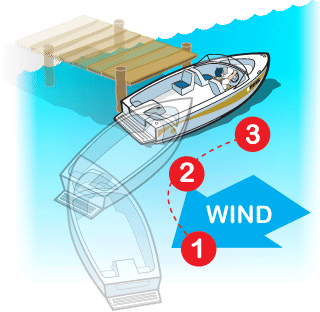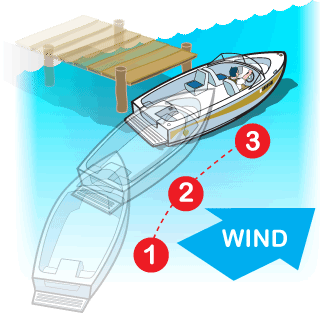Docking and Mooring
Docking or mooring your vessel can be the most challenging of boating operations. Maneuvering your vessel into a dock or a mooring marker in calm conditions is hard enough—add high traffic, choppy water, and windy conditions to the mix and you quickly realize that proper docking and mooring is a real skill. Keep the following factors in mind for effective docking and mooring:

Preparation
When you approach the dock, slow your speed, secure fenders on the docking side, and ready the docking lines.
Traffic
If you are headed to a marina with limited docking stations, you may have to wait until stations open up. Be patient and courteous; approach only when you see an open station and have communicated your intention to other vessels that are departing and waiting.
Wind and Current
The direction of the wind and the flow of the water current have a huge impact on docking.
In Your Face
If the wind is in your face, you should approach the dock at a steep angle (30°-45°) and swing the boat quickly. Secure the bow first, then reverse until the stern swings in.

At Your Back
If the wind is at your back, you should approach the dock at a shallow angle (10°-20°), and then stop the boat in order to allow the wind to drift the boat into the dock.

If possible, approach the dock with the wind into your face: you have much more control when docking into the wind.
31/33